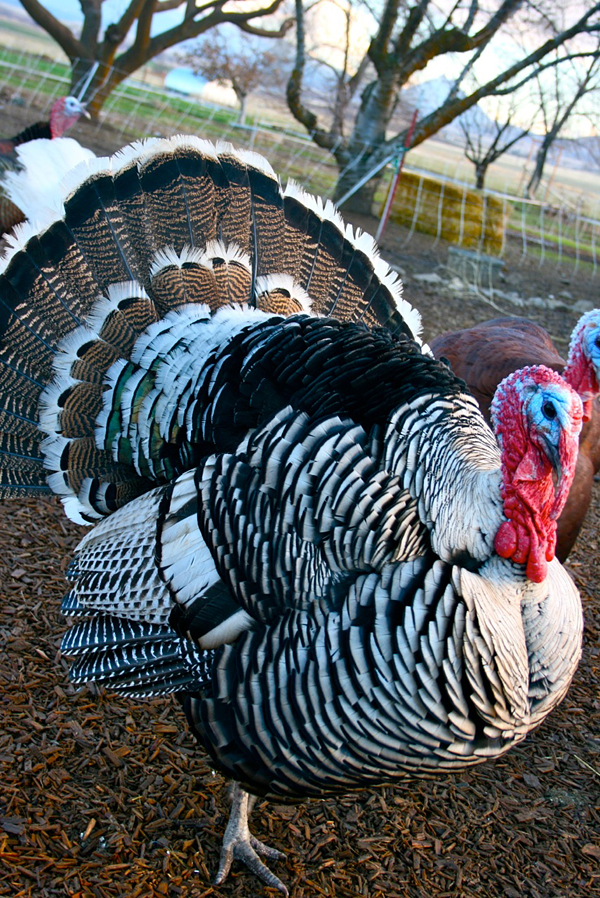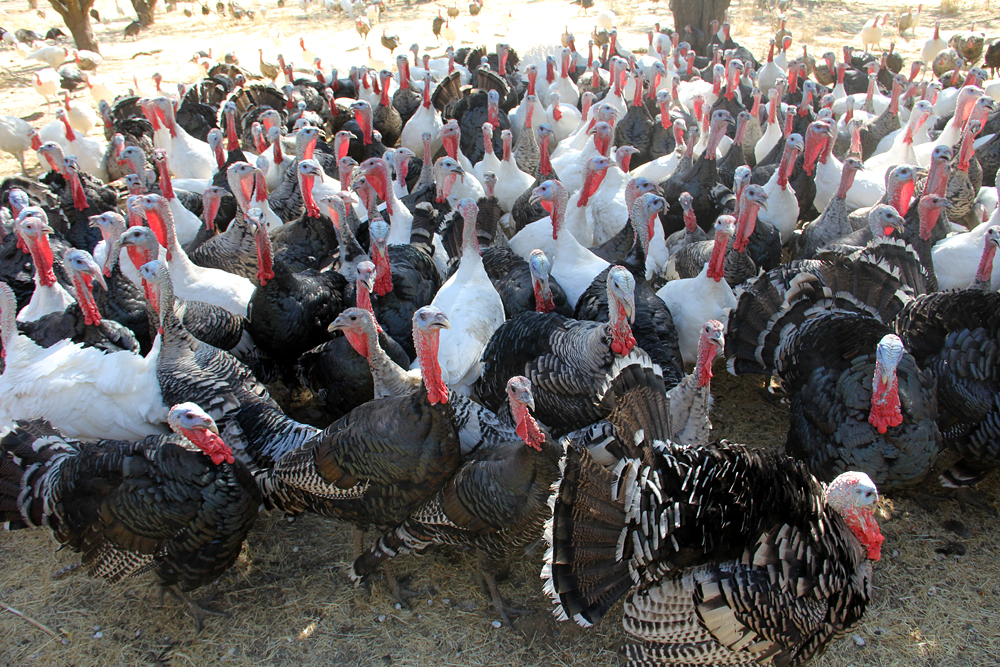
Photo: courtesy of Belcampo
Updated November 7, 2019.
Now's the time to figure out what kind of turkey you want on your table. Options abound, as do prices. So, how can you get the best of your bird?
Here a few questions to help you deconstruct your turkey-buying possibilities:
- What is your budget?
- Are you looking for a fresh or frozen turkey?
- How many people will you be feeding (and how many leftover-turkey sandwiches do you want to make)?
- What's important to you and your family: Organics? Avoiding GMOs? Humane practices? Helping preserve heritage breeds?
- Do you, your family, or your guests have a strong preference for white over dark meat, or vice versa? How adventurous a cook (and eaters) are you working with?
Turkey Prices
Prices for turkeys really vary, depending on where you're shopping, and more importantly, how the turkey was raised. Supermarkets often price their mass-produced frozen turkeys very cheaply, even giving them away if you spend a certain amount on other items. By contrast, a locally and humanely raised bird that's been freely wandering the green pastures of Marin or Sonoma for five or six months and eating organic, certified non-GMO feed can cost between $75 and $150, possibly more, depending on size. However, there are a variety of options between free and top-of-the-line, so it's worth calling around to quality butcher shops in your area to see what they're offering.
Fresh vs Frozen
Refrigerator real estate is one prime reason for buying a fresh, rather than frozen, bird. The safest, most reliable way to thaw out a frozen bird is in the refrigerator. Count on a thaw rate of four pounds a day, which getting a frozen bird oven-ready can take anywhere from two to four or even five days. In other words, you'll need several days' worth of turkey-sized thawing space available in your fridge if you buy a frozen bird. A fresh bird is just that, probably dispatched less than a week before being purchased.
Local Brands and Butchers
Both Diestel Turkey and Willie Bird focus exclusively on turkey raising--Diestel in Sonora, in the Sierra Foothills near Yosemite, and Willie Bird in Santa Rosa, in Sonoma county. Both are longtime family-run operations, and their birds are available at many butcher shops and specialty markets around the Bay Area. Willie Bird sells both free-range and free-range organic birds, while Diestel offers several different types: classic "original" birds, organic birds, pasture-raised birds, and its heirloom collection of old-fashioned breeds, a mix of Bronze, Auburn, and Black. All of Diestel's birds except for the "original" birds are raised on certified non-GMO feed.
